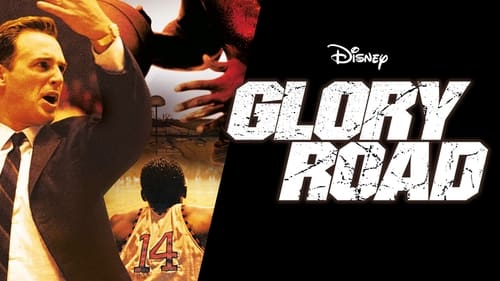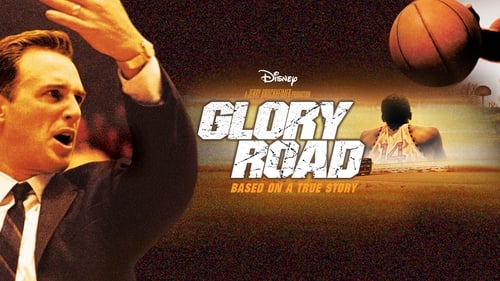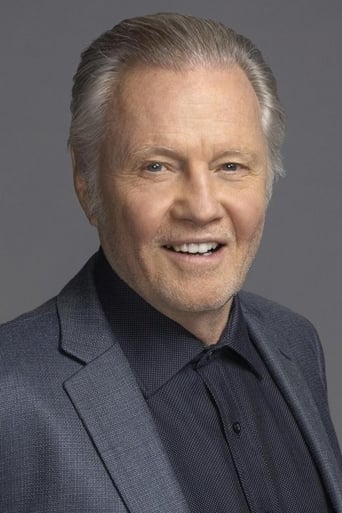tretay84
Glory Road will go down in my book as one of the greatest basketball movies of all time. Glory Road tells the amazing story of the underdog Texas Western basketball team, with history's first all-African American starting lineup of players, who took over the nation and surprisingly making it to the NCAA tournament title game in 1966. In 1962 Don Haskins (Josh Lucas) - a player who had big dreams to play basketball in college that eventually disappeared because of a knee injury- went West to El Paso, to take the Head Coach position at Texas Western University, a school not known for its basketball program. His new bosses don't offer much to Haskins besides low salary and the family is even forced to live in the same dorm as his players, but they don't expect much in return. After arriving at Texas Western he started to make a few changes. The next few scenes of the movie are a series of short clips from the players. These shorts scenes give the audience a back ground view of these players to see where they come from and what makes them the way they are. Haskins knows he has no chance of recruiting the best white players to come to small Texas Western, so he and his assistant coach flew out north to find African Americans who are happy to have scholarships and a chance to play D-1 college basketball. He was looking for the best players he could get, even though Texas Western was an unknown basketball school. In these times black athletes were often overlooked by major schools, and because Coach Haskins didn't care, he recruited more black players than the typical university would back in those days. One famous quote Haskins tells one potential player in one scene was, "I don't see color. I see quick. I see skill." It's qualities like those that motivate Haskins in his drive to produce a winning team. And win they did eventually, but not until Haskins teaches his players halfway, allowing them to incorporate some of the flashy moves that don't fit into Haskins' strict ideas of how the game is played; old school fundamentals. The team eventually comes together as one and they experienced lots of racial abuse throughout the movie because of having an all-black starting lineup. In Texas at that time, we learn, college basketball teams had been integrated, but there was an "informal rule" that you never played more than one black player at home games, two on the road or three if you were behind. They make a unbelievable run through the NCAA tournament and beat the number one ranked basketball team of Kentucky. Now this movie isn't about just the underdogs playing in a basketball game; which makes this sports movie different from most. It's about racism in American sports, and how coach Haskins and his players from Texas Western University made a remarkable moment in history I believe can be comparable to when Jackie Robinson was picked up by the Brooklyn Dodgers. After Texas Western played in the the 1966 NCAA championship with an all-black team on the court and went against an all-white Kentucky team coached by the hall of fame legend Adolph Rupp, rules were rewritten. Haskins and his team wrote the "emancipation proclamation of 1966," said NBA coach Pat Riley. "Glory Road" is an effective sports movie, but where it succeeds is as the story of a chapter in history, the story of how one coach at one school arrived at an obvious conclusion and acted on it, disregarding the racial rules of the 1960s. I believe he opened college sports in the South to generations of African Americans; even the ones still playing. Since this movie was based on a true story, the end credits tell us what happened in later life to the members of that 1966 Texas Western team, we realize that Haskins not only played for a NCAA title but made a contribution to the future that is still being acknowledged. There are also some humor scenes in this movie that may make you smile, when the black players get drunk in a Hispanic bar or when the white teammates are invited to a very crowded black party. The funniest parts of the movie are the teasing and razzing that goes on during practices and team outings. Chris Cleveland, the writer who adapted the movie from Don Haskins' autobiography and consultation with the real-life players, should get some credit for making dialogue both believable and entertaining. Unfortunately, a few problems keep the movie from being creditable. One problem is the timing of historical inaccuracies that the movie puts in for dramatic effect. For example, Haskins did not actually play in the championship until his fifth season at Texas Western, but the movie has him playing it in his first. Then, there were plenty of black players in college ball before Texas Western, but just not in the southern leagues; the film doesn't show this. In the final game, the movie has Texas Western trailing after the half, when Kentucky never regained the lead after halftime. And in the previous victory over Kansas, the movie overlooks that Kansas had three black players other than JoJo White, and that his famous shot where he stepped out of bounds was not the final shot of the game. Even though I believe most people didn't know these facts, I still think that they could have put these situations in the movie to make it more realistic. In conclusion, Glory Road is a great movie to see especially if you're a sports-drama movie fan. The fun scenes, great story line, and amazing actors makes this one of the movies that you won't get tired of watching for a while. Even though the historical references are a little "stretched", they don't take away the good aspects of this film.
tieman64
A well meaning but formulaic film, James Gartner's "Glory Road" stars Josh Lucas as Don Haskins, head coach of Texas Western College. Based on a true story, and set in the late 1960s, the film details the formation of the NCAA's first all black starting lineup.At its best, "Glory Road" explores issues of racism, discrimination and social isolation. At its worst, this is a reductive, by-the-numbers film whose climax assigns false triumph to ongoing issues. There's also something tawdry about a co-production between Jerry Bruckheimer and Walt Disney Pictures attempting to promote black consciousness and black pride.Still, "Glory Road" sheds some light on an interesting part of history. It climaxes with a 1966 championship game, a game which would mark a key point in racial integration, and instigate a shift from basketball being labelled a white sport to it becoming a primarily black activity (in terms of race association and participation). "Glory Road" co-stars Jon Voight as a weaselly rival coach.7/10 – See "Inside Moves" and "He Got Game".
graceandforgiveness21
The true story of the Texas Western University Miners (now called the University of Texas at El Paso) who defied all odds in 1966 by being the first NCAA basketball team to start five African-American players (led by Derek Luke of "Antwone Fisher" and Mehchad Brooks of "Desperate Housewives" fame) and ultimately winning the national championship. New coach Don Haskins (played superbly by Josh Lucas, one of the most under-rated actors in film right now) has trouble recruiting when he first arrives, but finds players in places like Detroit and Brooklyn. In the civil rights torn south though, getting African-American ball players was highly controversial and even potentially dangerous. It ends up being fitting that the team would meet up with Adolph Rupp (impressive transformation as usual for Jon Voight) and his University of Kentucky Wildcats for the championship that year as UK was one of the last major colleges to integrate its basketball team. Socially important story and highly educational for youngsters who may not be familiar with the importance of this stage in contemporary U.S. and sports history. Great sequences and styles in the tradition of sports classics like "Hoosiers", "Remember the Titans" and "Friday Night Lights". 5 stars out of 5.







